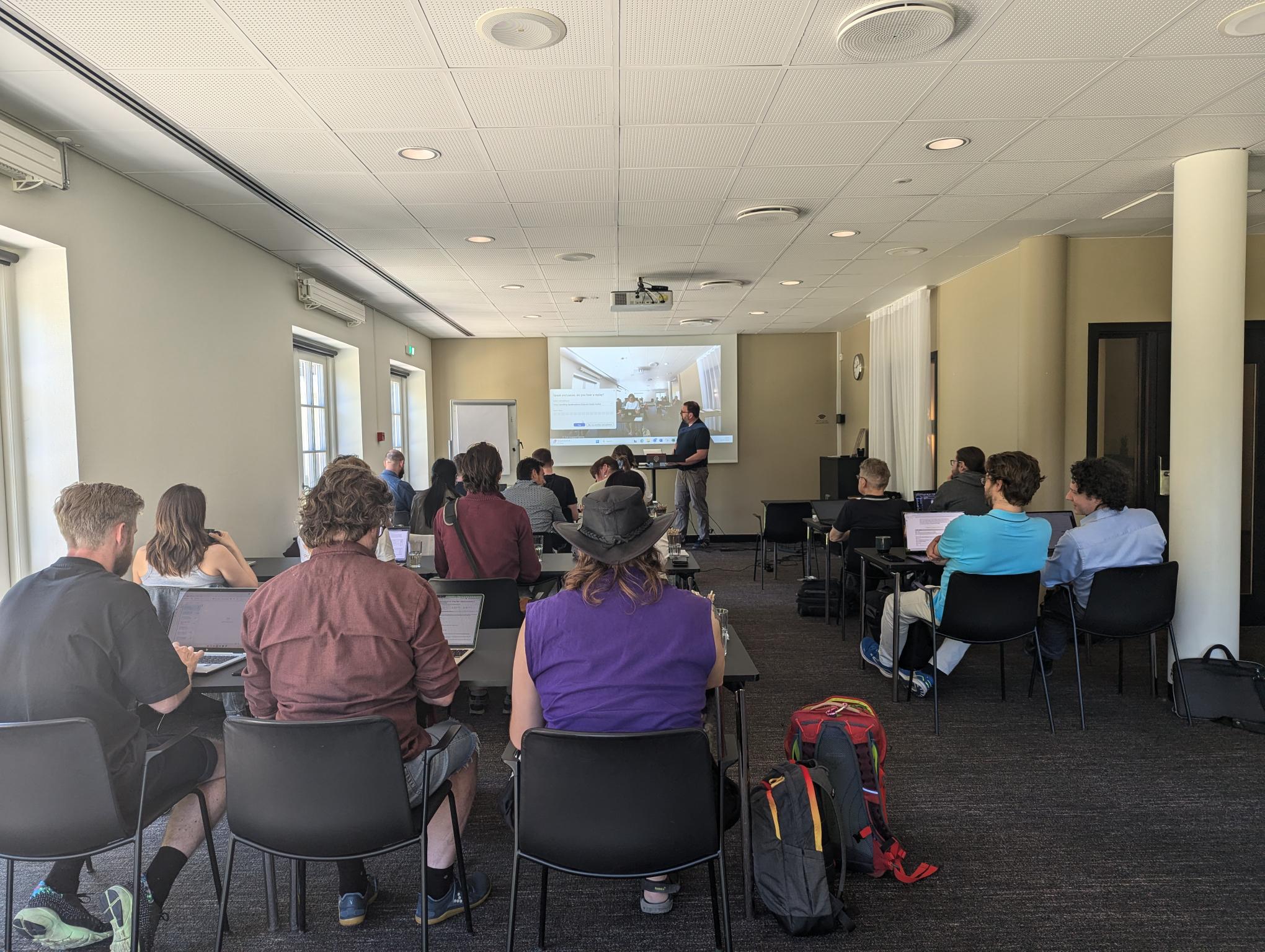
Are you interested in creating software solutions that will enable a streamlined workflow for using the European infrastructure for supercomputing in the areas of AI development for research, public administration and industry?
Do you see yourself as an enabler that can make it easy to use the huge amounts of available research and company data in the development AI models? Do you wish to work with one of the biggest supercomputers in Europe and be part of the journey toward new and clever ways of using data?
We are looking for skilled system software developers with an interest in developing system infrastructure to help us reach our goal of making AI and HPC easily accessible to all researchers at the Danish universities, public administration and industry. The position is either in Aarhus or in Lyngby at DeiCs offices.
At DeiC you will play a pivotal role in building the Danish contributions to the infrastructure on a European scale. Working closely with a multidisciplinary team. You will ensure researchers and analysts access to state-of-the-art AI and HPC and easy use of data sets to maximize the impact AI development.
You will be working as part of the LUMI AI Factory with a team of people from Finland, Norway, Estland, Poland, the Czech Republic and Denmark in the biggest AI Factory in Europe, and in collaboration with the other AI factories in Europe.
The job
You will join the HPC department within DeiC working on a diverse set of tasks – matched to your skill set and interests – related to building infrastructure and enabling easy access to shared datasets and moving them to the compute resources. The goal is to assist users in accessing and managing the data they need for their projects, including data already available in LUMI and LUMI-AI, data from European Common Data Spaces or other external sources, and the users' own data.
Examples of typical tasks include:
- Developing system services for advanced infrastructure to move data between different facilities.
- Designing, developing and maintaining software solutions that are used on a large network of data sources in Europe. Creating and maintaining documentation, tutorials, and knowledge-based articles to facilitate the usage of the developed services and infrastructure.
- Collaborating with the other departments in DeiC to developing new services regarding data and data movement.
- Taking part in national and international projects with the overall goal of enabling the AI uptake in Denmark.
- Coordinating and developing services in collaboration with stakeholders in Denmark and Europe.
- Collaborating with other partners in the LUMI AI Factory to understand the needs with regards to enabling a broader usage of datasets.
The HPC department works in close collaboration with the Quantum Computing and Data Management Departments within DeiC ensuring consistency in our solutions for processing data according to best practices on FAIR data, AI, HPC and quantum computers.
Our expectations of you
We imagine you hold a master’s degree in computer science, Engineering, Computational Science, electrical engineering or a related field regards to software development.
We greatly appreciate applicants with:
- Experience in developing system software with a mindset of easy to use.
- Strong problem-solving skills and the ability to troubleshoot complex technical issues related to AI and HPC systems for integration of the developed infrastructure.
- Strong communication skills, with the ability to convey technical concepts effectively to diverse audiences and foster collaborative relationships.
- Excellent collaboration skills with an open mind to colleagues from all over Europe and make sure that DeiCs values and goals are at the forefront of what you do.
- Ability to communicate professionally in English. Being able to speak Danish is not a requirement. The best way to fully integrate with your new colleagues is to have a wish to learn some basic Danish.
In addition, we are looking for people with experience or knowledge with one or more of the following topics:
- Proficiency in system programming languages like GO, C#, Python, Java, and to some extent C and C++.
- Proficiency in creating services and developing services where a task could be running for a long time (e.g. moving peta bytes of data).
- Experience with data management practices in computational experiments.
- Experience with source code version control (Git/GitHub), automated testing (CI/CD), and DevOps practices. Experiences in Linux and other OS that are the backbone of the infrastructure.
- System development in relation to help building research e-infrastructure systems or other systems to enable users to take advantage of HPC systems.
- Experience with cloud computing platforms (Azure/AWS/Google) and containerization technologies (Docker/Kubernetes/Singularity/Apptainer)
What we offer in return
An organisation that prioritizes a good work-life balance and offer flexible working hours along with the option for remote work (2 days per week) with excellent opportunities for further developing your professional skills via courses, hackathons, self-study, and knowledge sharing with colleagues.
We are a diverse team dedicated to advancing e-infrastructure services and leveraging technology for the public good.
We have a value of collaborative and intellectually stimulating environment where your expertise in HPC and research support is valued and where you get to be part of the daily decision making.
The HPC Department’s focus is to provide meaningful impact by supporting groundbreaking research across various disciplines.
Salary and appointment terms
Terms of appointment and payment according to the Agreement between the Danish Ministry of Finance and the Danish Federation of Professional Associations (AC) or any other relevant agreement.
The workplace will be at the Aarhus office at the Aarhus University Campus or the DTU campus in Lyngby.
If you are not currently living in Denmark, relocation to Denmark will be needed. For people outside the European Union, please make sure to state in your application what country you will relocate from as different rules apply.
Application and contact
Please submit your online application via this website no later than 13 August 2025 (Danish time). Open the “Apply now” link, fill out the form and attach your motivated application, CV and exam certificates.
If you would like to know more about the position, please contact Head of HPC, Eske Christiansen on +45 9351 0048 or email eske.christiansen@deic.dk.
Applications received after the deadline will not be considered.
All interested candidates irrespective of age, gender, disability, race, religion or ethnic background are encouraged to apply. As DTU works with research in critical technology, which is subject to special rules for security and export control, open-source background checks may be conducted on qualified candidates for the position.
About DeiC
The Danish e-infrastructure Consortium (DeiC) is the national collaboration with and among the universities for the delivery of digital research infrastructure. DeiCs main tasks include providing the Research Network and related services, security, data storage and data management services, supercomputers, and quantum infrastructure. DeiC coordinates the national infrastructure and represents the collaboration in international organisations.
DeiC is defined in Executive Order BEK6155 of 23/05/2023. DeiC develops and coordinates collaboration on digital research infrastructure between the universities, with the aim of ensuring that researchers have access to a digital research infrastructure that enables research and education at an international level.
All employees are employed by DTU, which is the host university for DeiC. We are physically located in offices at DTU, Aarhus University, and the University of Southern Denmark, and we are used to working together across locations via digital platforms.




